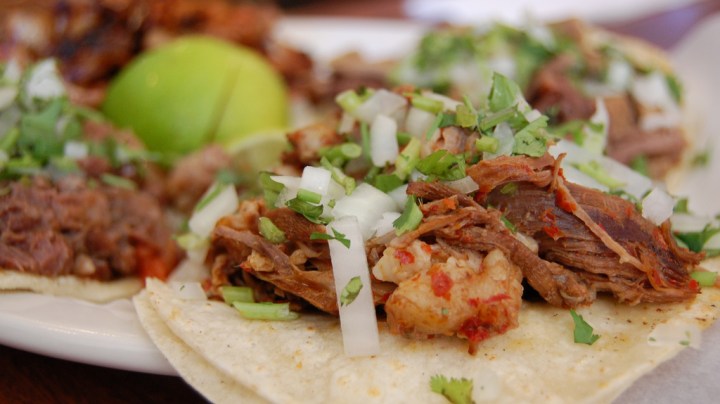LA Sheriff’s Deputy Used Taco Sauce to Fake Blood Evidence and Courts Didn’t Find Out for Years

Birria Taco by Stuart Spivack is licensed under CC BY-SA 2.0.
Today, a months-long LA Times investigation revealed the misconduct of L.A. Sheriff’s Deputy Jose Ovalle, and the California privacy laws that allowed him to keep his wrongdoing secret from courts for years – even as he acted as a witness in dozens of criminal cases.
In 2003, Jose Ovalle was suspended from his job after he poured taco sauce on a shirt and attempted to pass it off as blood evidence in a criminal case. At the time, Ovalle’s responsibilities were to collect evidence from crime scenes and write incident reports. On the day of this incident, he claims, a suspect’s bloody shirt disappeared before he could book it into evidence. So instead, he grabbed a clean shirt, spread taco sauce on it, and submitted a photo of the shirt as evidence. After a colleague on the scene reported him, Ovalle confessed to his actions and was nearly fired.
Despite this misconduct, the Ovalle was permitted to take the stand as a witness in 31 criminal cases, where prosecutors relied on his credibility to give testimony that often led to a conviction. The thing is, no one in the district attorney’s office knew about his record of falsifying evidence, because California’s police privacy laws keep law enforcement misconduct hidden from courts. Even though the Supreme Court requires prosecutors to tell criminal defendants if a police witness has any past wrongdoing on his record, California’s rigid privacy laws prevent prosecutors from accessing that information directly.
In fact, according to a troubling LA Times investigation last year, “Ovalle and others [were] on a secret Sheriff’s Department list of deputies whose misconduct included falsely testifying in court, pulling over a motorist and receiving oral sex from her while on patrol, and tipping off a drug dealer’s girlfriend about a narcotics bust. Los Angeles County Sheriff Jim McDonnell wanted to disclose the so-called Brady list of about 300 officers to prosecutors, but the deputies union went to court to stop him.”